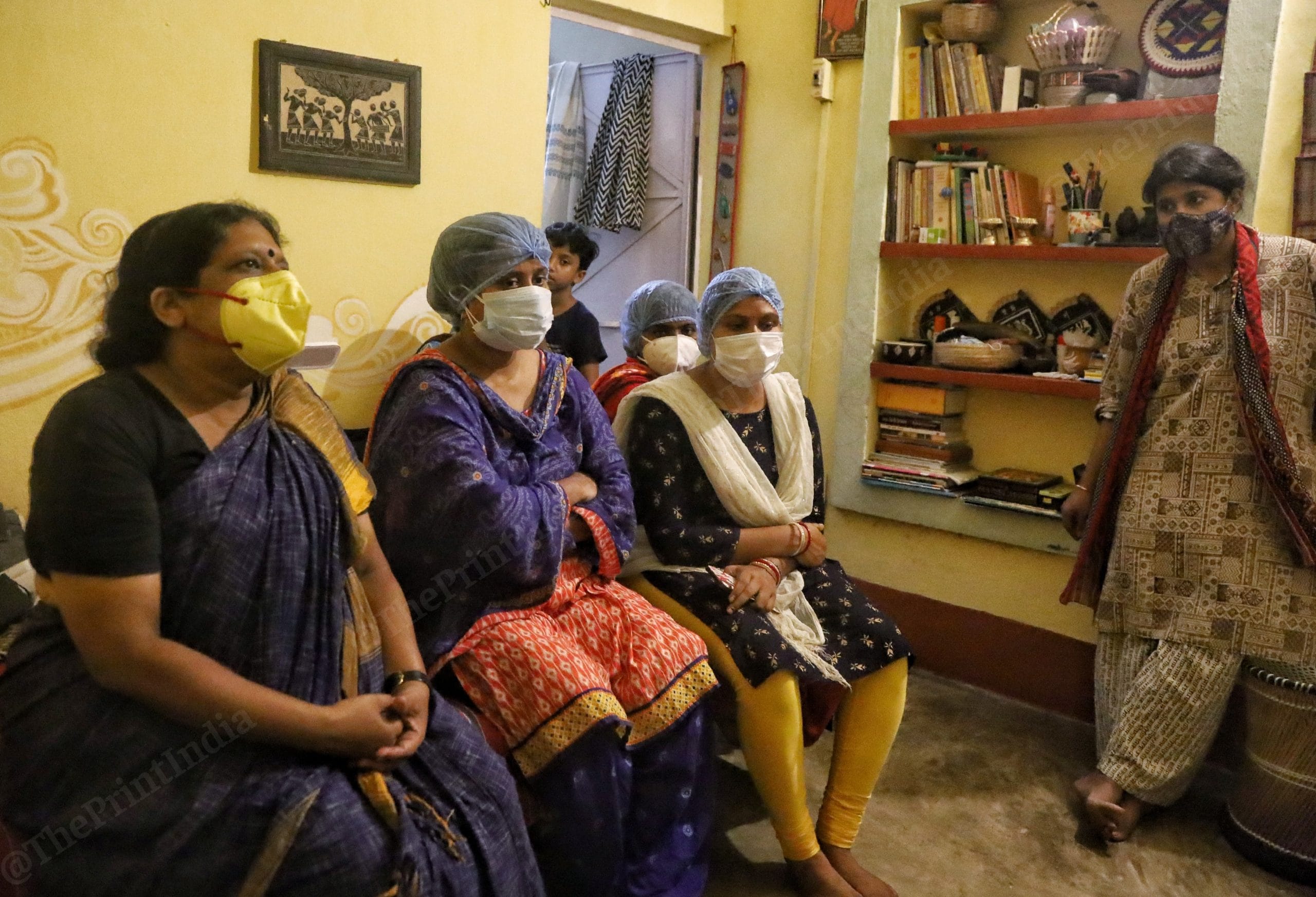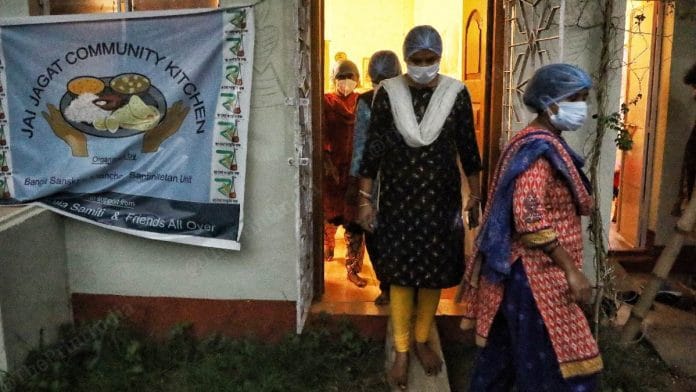Birbhum: They are a team of 10 women — cutting across religious lines and economic divides — with a common aim: To help people during the crisis brought on by Covid and the subsequent lockdown.
Comprising teachers, students, and home-makers — some of whom have themselves beaten coronavirus — the team offers aid to Covid patients in West Bengal’s Birbhum district, which comprises a combination of rural and semi urban areas.
Set up two weeks ago, days after the state imposed lockdown-like restrictions to curb the second wave, the team now cooks and delivers food to around 60 to 70 Covid-affected families every day. Apart from this, they help elderly Covid patients in isolation with medicines and oxygen.
Their services are free. Initially fuelled entirely by the women’s savings, the initiative now also attracts donations from local residents.
This Covid aid group is the brainchild of Monisha Banerjee, a teacher who serves as the principal of a government school at Rampurhat. She launched it with her teenage daughter, who subsequently contracted Covid after coming into contact with patients, and is currently running it with fellow teacher Barnali Bose.
Soon, many others joined in with a desire to help.
“I did not start with any expectation that I would get more women to join me. But I thought that it should be an all-women team, if we at all succeed in creating a small network,” Banerjee told ThePrint.
“It seems that we have been able to send a message. When women like Barnali or I started visiting the houses of Covid-affected people, helping them with medical aid and food, the women of that family or the neighbouring families saw us,” she said. “Some of them contacted us saying they would also like to help us in whichever way possible. Some help us in cooking, some help us with their small savings.”
The team members don PPE to protect themselves from infection. Their network has also helped serve an unintended purpose: They stopped a few child marriages across the villages in the district as and when they came across such incidents.
Also Read: Bengal woman whose mother was branded ‘witch’ now helps save same villagers with O2 delivery
‘Nobody wants to help’
The second wave of Covid-19, which has exacted a grievous toll around India, stripped the rural areas in Bengal of hope. The villagers, many of whom shunned the idea of wearing a mask and almost denied the existence of the pandemic, were suddenly taken aback as those they knew began to fall sick, gasping for breath, with some of them even dying.
“In villages, there is a huge stigma associated with the disease. Nobody wants to come out and help. We have seen families refusing to take the bodies of people who died of Covid,” said Bose, who teaches at a government school in Labhpur, 35 km from Bolpur town.
“There are many families, especially senior citizens, who do not even get two meals a day. This affected us. Our schools are closed and we take online classes. So, we thought of starting a small care group that can help such people,” she added. “But we wanted it to become an all-women group, so that more and more women from villages come and join us.”

Bose’s phone serves as the team’s “call centre”, and it keeps on ringing with requests for help.
“We get calls late at night too,” Bose said, before adding that their endeavour is also helping them tackle stereotypes.
“There is this stereotype that women do not venture out at night, so they cannot run such an initiative, which requires an ability to work at odd hours,” said Bose. “Many people also think that women would not be able to do this, as this work needs a lot of heavy-lifting, like moving cylinders from one place to another. But we proved them wrong,” she added, smiling.
Aiming for wider reach
While the team has grown to find associates among multiple women from different villages, who help run the initiative, the central team has 10 members.
Sabina Yashmin, who recently had a caesarean delivery and suffers back pain as a result, said she joined the team because the cause inspired her.
“I am a homemaker. I do not have the resources to support them by offering financial help. But I can cook for them. Everyday, we cook meals for at least 60-70 families. I do not even feel the back pain that otherwise disturbs me a lot,” she added. “Kalyani (another member) and I handle all the big containers, stoves and chullahs to cook alone. The cause keeps me motivated,” Yasmin said.
Bose stated that they wish to extend their service to other places.
“We will keep taking more and more interested women with us, if they want to work for this cause,” she added.
(Edited by Sunanda Ranjan)
Also Read: Modi, state government, destiny. Survey asked Indians who they blame for Covid deaths






